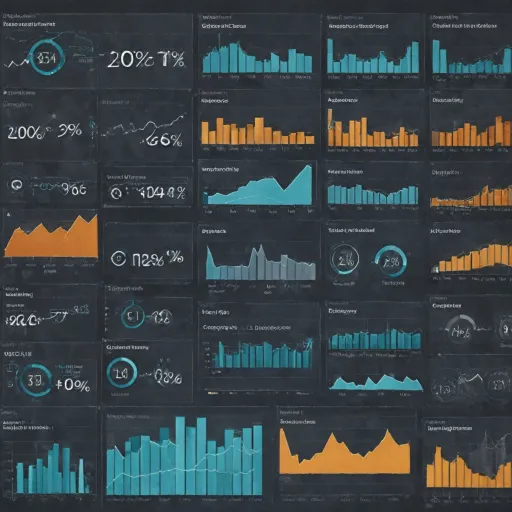
Decoding Compensation DOE
Deciphering the Nuances of Compensation DOE
Compensation DOE, or "Dependent on Experience," is a term frequently encountered in job postings and recruitment processes. It signifies that an employer's offer for a position will be adjusted based on the individual qualifications and experiences of the job candidate. Unlike a fixed salary, DOE salaries offer flexibility, facilitating more dynamic salary negotiations. This flexibility attracts a diverse pool of candidates, including those with unique skills and varying experience levels, as it allows employers to tailor their compensation offer. It also presents challenges in the hiring process, including evaluating what DOE salary should be offered to a particular candidate based on their qualifications and market conditions. The concept of "DOE pay" broadens the spectrum for both employers and job seekers. For employers, it's a strategic approach to attract top talent, offering a salary doe that reflects the specific value and potential contributions of a candidate. For job seekers, it signals that there is room for negotiation and underscores the importance of adequately showcasing their experience, skills, and qualifications during the recruitment phase. In practice, this approach to compensation can result in higher salaries for candidates who bring more to the table in terms of experience skills and candidate qualifications. Employers adopting this method must ensure that their salary doe frameworks are consistent and fair to attract and retain top-tier candidates, which is a key component in driving long-term success in any organization. Exploring the nuances of Compensation DOE is critical for both hiring managers and candidates to ensure that the compensation packages offered are competitive and justified. Exploring Career Opportunities at Hilti is one example where such approaches might be explored deeply, given their implications on organizational attractiveness and talent acquisition.The Role of Compensation DOE in Recruitment
The Role of Compensation DOE in Hiring and Recruitment
When it's time to hire, employers often use the term "DOE"—meaning "Depends on Experience"—in job postings to indicate that compensation is not fixed but rather adaptable. This flexible approach is significant for attracting top-tier candidates who bring varying levels of experience and expertise. Using compensation DOE allows employers to tailor offers based on the specific experience levels and skills of applicants, rather than a one-size-fits-all fixed salary. Job seekers interpreting DOE job postings should be aware that it provides room for salary negotiations. A DOE salary or pay isn't just about what one has done in past roles, it's also about the potential they bring to the table. As candidates showcase their unique experience skills and qualifications experience, they'll find that employers are more willing to consider a higher salary. Incorporating DOE into the recruitment strategy offers significant advantages:- Flexibility in Offers: Employers can adjust the salary based on a candidate's qualifications, making it possible to attract those with higher skills without rigid constraints.
- Attracting Diverse Candidates: A DOE approach can widen the pool of applicants, encouraging those with unique experience levels and skills to apply, even if they don't meet all listed qualifications.
Impact on Employee Retention
Influence on Workforce Stability
Understanding the implications of the DOE (Depends on Experience) salary approach is crucial for employers striving to maintain workforce stability. By tailoring compensation based on a candidate's qualifications and experience, companies can enhance their retention efforts. The flexibility intrinsic to DOE salaries often results in more personalized salary negotiations, ensuring that both job seekers and employers can align on a fair compensation package. This alignment is vital in reducing turnover, as employees who feel their pay reflects their experience levels are more likely to remain engaged and satisfied in their roles. Moreover, offering a compensation range with room for growth based on skills and experience can increase job satisfaction. It creates a perception of fairness and opportunity, both of which are key drivers of employee retention. For businesses, this results in a more stable workforce, reducing the costs associated with high turnover rates. Candidates assessing a job offer with DOE terms should weigh how this flexible pay structure aligns with their career objectives, current qualifications, and skills. When smartly implemented, DOE can turn into an attractive proposition for potential hires, subsequently strengthening an organization's talent pool. To explore further how HR analytics can enhance employee relations and support retention strategies, you might find this insightful read beneficial.Data-Driven Approaches to Compensation DOE
Leveraging Data for More Informed Compensation Decisions
To truly harness the potential of Compensation DOE, a data-driven approach is paramount. Employers can utilize data analytics to assess factors such as candidate experience, skills, and qualifications, which play a crucial role in determining the appropriate DOE salary. By analyzing historical data, organizations can identify trends and patterns in job seekers’ preferences and their negotiations. This allows for more informed salary recommendations based on candidate qualifications and experience levels. Employers can then tailor compensation offers to be both competitive and attractive to potential candidates.- Experience Levels and Skills Analysis: By studying data on experience levels and skills possessed by previous candidates in similar roles, organizations can benchmark DOE salaries that correspond with the current market demand.
- Customized Compensation Packages: Data analytics supports creating flexible compensation packages that meet the unique needs of candidates. This can include higher salary proposals for those with specialized qualifications or skill sets.
- Predictive Analytics: Predictive models can forecast future salary trends and DOE pay outcomes, enabling HR teams to strategize long-term compensation planning.
Challenges in Implementing Compensation DOE
Overcoming Obstacles in Implementing DOE Compensation
Implementing Compensation DOE (Depends on Experience) in the hiring process can be a complex task for employers. While it offers flexibility and the potential for attracting a diverse range of candidates, it also presents several challenges that need careful consideration.
One of the primary challenges is ensuring transparency in job postings. When salaries are listed as DOE, job seekers may feel uncertain about the potential pay range, leading to hesitancy in applying. Employers must strike a balance between offering flexibility and providing enough information to attract qualified candidates. Clear communication about the factors influencing DOE salaries, such as skills, experience, and qualifications, can help mitigate this issue.
Another challenge is managing salary negotiations. With DOE positions, candidates may have varying expectations based on their experience levels and skills. Employers need to be prepared for negotiations and have a structured approach to determine fair compensation. This involves assessing the candidate's qualifications and experience to offer a salary that aligns with both the company's budget and the candidate's expectations.
Additionally, there is the risk of perceived inequity among employees. When salaries are based on individual negotiations, it can lead to discrepancies that may affect employee morale and retention. Employers must ensure that their compensation strategies are consistent and fair, taking into account the qualifications and experience of all employees.
Finally, implementing a DOE approach requires a robust data-driven strategy. Employers need to analyze market trends, industry standards, and internal salary data to make informed decisions. This data-driven approach helps in setting competitive salaries that attract top talent while maintaining internal equity.
In conclusion, while Compensation DOE offers flexibility and the potential for attracting a diverse range of candidates, it requires careful planning and execution. Employers must address these challenges to successfully implement a DOE strategy that benefits both the organization and its employees.
Future Trends in Compensation DOE
Embracing Flexibility and Data-Driven Insights
As the landscape of compensation DOE evolves, the focus is shifting towards more flexible and data-driven approaches. Employers are increasingly leveraging data analytics to tailor salary packages based on a candidate's experience and skill level, ensuring fair pay while maintaining competitiveness in the job market. This dynamic approach allows for personalized offers, moving away from the traditional fixed salary models. Key Trends to Watch:- Increased Use of Data Analytics: By analyzing data from various sources, companies can better understand salary benchmarks and align compensation offerings with industry standards. This supports an evidence-based approach, benefiting both employers and candidates.
- Customized Salary Offers: Personalization in compensation is becoming more prominent, with employers taking into account candidate qualifications and experience levels. This trend is particularly advantageous for candidates as it opens doors to higher salary negotiations based on their unique skills and contributions.
- Negotiation Leverage: With the growing availability of salary data, job seekers are better equipped to negotiate their DOE salary. Understanding market trends empowers candidates to advocate for salaries that reflect their true worth.
- Improved Candidate Experience: Offering transparent DOE pay structures helps demystify the compensation process, enhancing the candidate experience. Open communication about salary expectations fosters trust between employers and job seekers.













